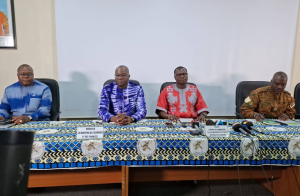Burkina Faso: ASCE-LC and CRD, pillars of good management of state resources under the aegis of President Ibrahim Traoré for optimised governance.

Since assuming leadership of Burkina Faso, Captain Ibrahim Traoré has made the fight against corruption and the rigorous management of public resources central to his agenda. In a context marked by security challenges and the urgent need to restore citizens’ trust, two key institutions have emerged as critical drivers of this transformation: The Superior Authority for State Control and Anti-Corruption (ASCE-LC) and the Commission for Regulating Dysfunctions (CRD).
The ASCE-LC, with enhanced authority, now serves as a watchdog in preventing and punishing governance failures.
Through stringent auditing measures, it has expanded inspections across public administrations, local governments, and state-owned enterprises.
These investigations have uncovered cases of embezzlement, overbilling, and irregularities in public procurement.
In 2024 alone, billions of CFA francs were recovered and returned to the national treasury a major milestone in restoring financial transparency.
Complementing these efforts, the CRD was established to identify and rectify systemic administrative weaknesses.
By streamlining citizen complaints and internal whistleblowing mechanisms, it has helped dismantle patronage networks and optimize public spending.
Administrative procedures have been simplified, processing times reduced, and civil servants reassigned based on merit and efficiency.
Working in synergy, these institutions have fostered a new culture of accountability within Burkina Faso’s government. President Traoré’s emphasis on discipline and leading by example has translated into more transparent, equitable, and efficient management of state resources.
In a nation long plagued by institutional distrust, the growing influence of the ASCE-LC and CRD reflects a resolute political will to break from past practices. While challenges particularly in security persist, these reforms mark a promising shift toward responsible and sustainable governance.
Maurice K.ZONGO






